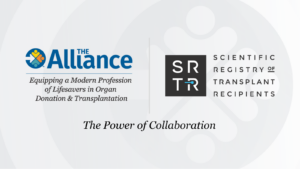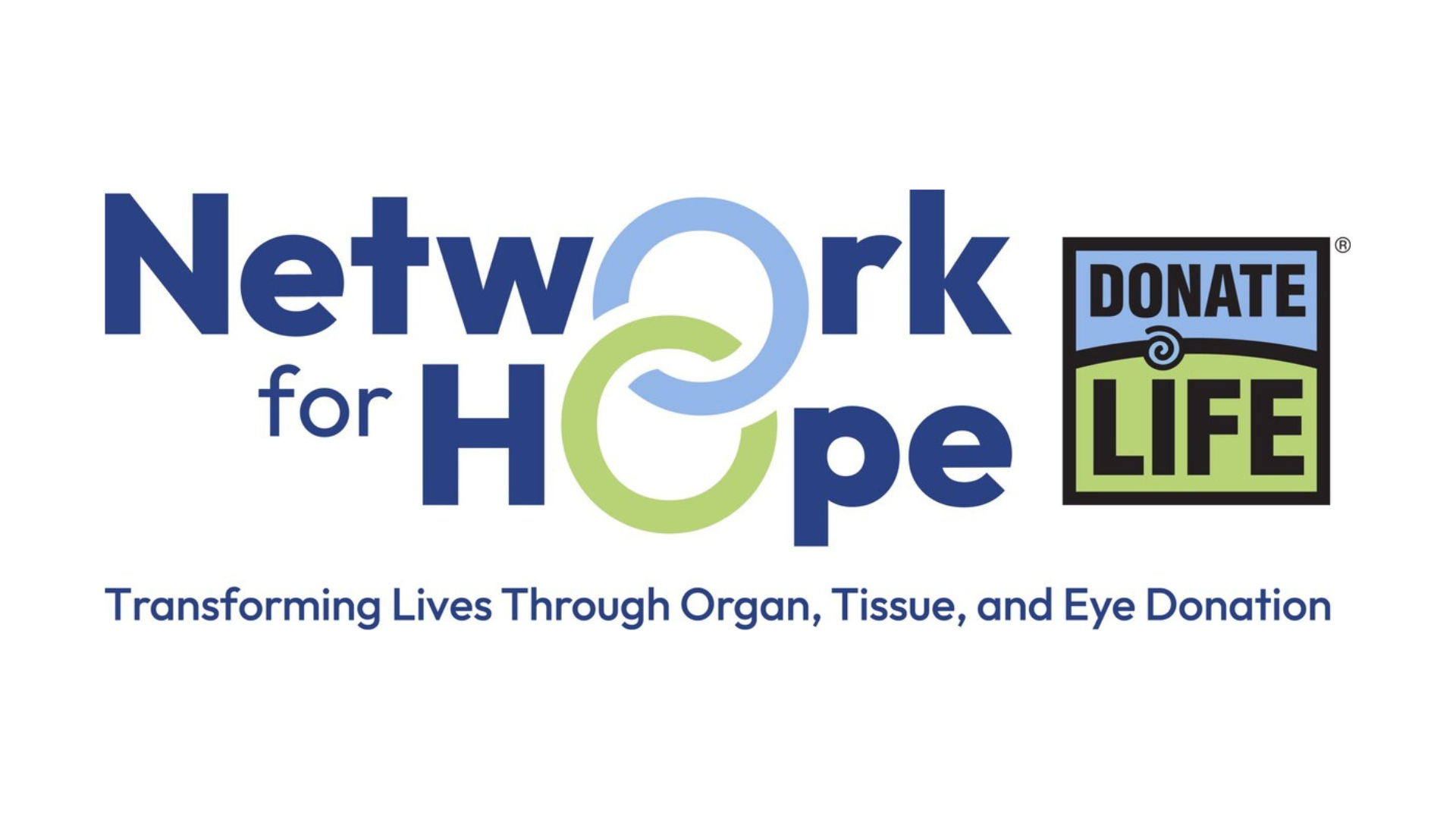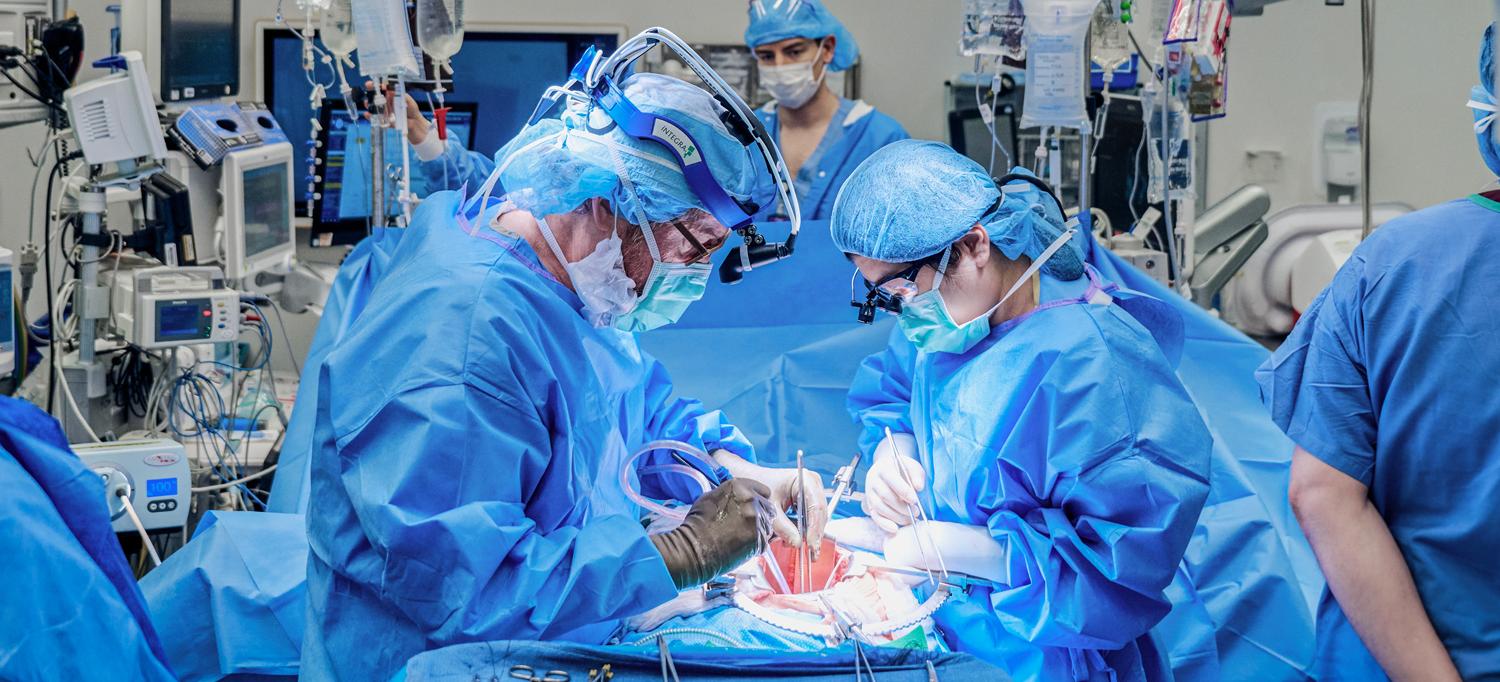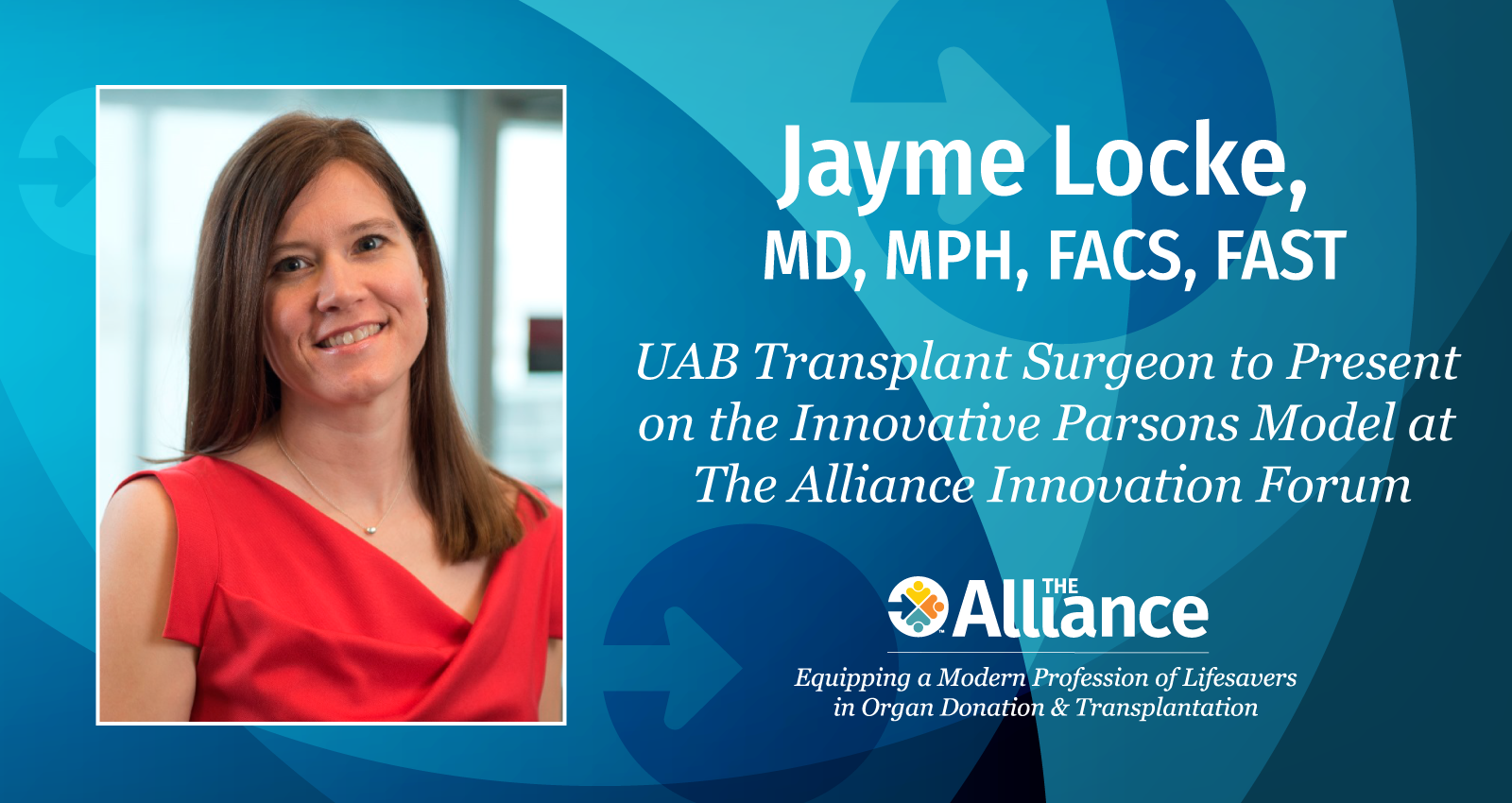Nicholas Wood, PhD, is a biostatistician whose passion for organ donors keeps him focused on his research to use data to bring clarity to the discussion of organ allocation. “I feel a particular connection to organ donors,” says Wood, who is a member on the transplantation team at the Chronic Disease Research Group, (CDRG) a division of the Hennepin Healthcare Research Institute, which operates the Scientific Registry of Transplant Recipients (SRTR) under contract with HRSA. “Much of my research is around organ allocation and how that process works. I’m very passionate about trying to make sure that the process works as well as it can so that every organ that people have so generously donated is used.“
“I’m Catholic, and one of the things that’s somewhat unique to the Catholic faith, at least amongst Christian denominations, is that we pray for the dead. I feel called specifically to pray for organ donors.”
Wood presented his research at the Organ Donation and Transplantation Alliance (The Alliance) 2023 National Critical Issues Forum on “Logistics and Reducing Organ Loss” which is available as an on-demand learning pathway. At the session, he gave an overview of some of the logistical challenges presented by recent organ allocation policy changes.

Wood is a new inductee on The Alliance National Innovation Leadership Council, and will contribute data or present at several of The Alliance’s 2024 learning programs, including the January 23 annual metrics program held in partnership with SRTR, “Count on US: Using SRTR Data to Monitor Transplant Program Performance” and on April 11 on “SRTR Donation Metrics.” Additionally, The Alliance has scheduled an Advancement Series Learning Program on January 25 on “Performance Improvement: How to Handle MPSC Metrics for Transplant Programs.”
Wood was recruited to work on the SRTR by Jon J. Snyder, PhD, Director of Transplant Epidemiology at the Hennepin Healthcare Research Institute. Snyder serves as treasurer of The Alliance’s Board of Directors and will also present at The Alliance’s January 23 and April 11 learning programs.
Wood is part of the 30-member transplantation team at the CDRG and does independent research and data analysis. “None of it is particularly complicated from a statistical point of view, but, what’s complicated about it is wrangling the data that are really messy and hard to use. Once you can do that, then what I’m showing is here’s the average or here’s the median, or hey, let’s just look at how that data changes over time. I’m a researcher, I’m a data analyst, and just a genuinely curious person.”
A Genuinely Curious Person
Wood says his curiosity was instilled in him by his father. “One of the biggest things that I got from my dad was trying to learn something new every day,” he says. “He would always ask me ‘what did you learn today?’ and he said he learned something new every day. The biggest thing for me is to not be scared to jump into a topic which you know nothing about.”
“Transplant is a good example,” he continues. “If you pick up any article or book about transplant, there’s going to be a million different things that you don’t know. There’s going to be acronyms. There’s going to be words that have very specific meanings in that context. There’s going to be problems and challenges and issues that are going on in that subject.
“The method that I’ve used is just to say, that’s okay. I’ll just keep reading more things and slowly things will start to click. That’s my methodology. I’ve used it with mathematics, philosophy, and history, too. You just jump into something and it’s all very new, but it’s interesting. The more you’re willing to engage with the information, the more familiar it will become.”
Serendipitous Journey to Transplantation
Wood grew up in Columbus, OH and attended Ohio State University where he received a PhD in chemical engineering in 2018. His dissertation, “Extension of Similarity Functions and their Application to Chemical Informatics Problems” examined the problem of how to determine how similar a molecule is to a set of cancerous compounds, and how similar is it to a set of non-cancerous compounds, to help pharmaceutical companies in their drug discovery efforts.

There’s a bit of serendipity in his journey to conducting research and data analysis in transplantation. In 2016, when he was in his third year of graduate school, his girlfriend (and now wife), RoseMerrie Wood, PharmD, BCTXP, was in her fourth year of pharmacy school and had a rotation at Ohio State’s Wexner Medical Center on the kidney transplant floor. “She fell in love with transplant pharmacy and ended up doing a second-year residency at the University of Maryland. After we got married in June of 2018 and I finished my dissertation in December, I saw an opening for operations research in transplantation in the math department at the U.S. Naval Academy.”
Wood landed the position and ended up doing a postdoc with Sommer Gentry, PhD, professor of mathematics at the U.S. Naval Academy. Gentry’s husband Dorry Segev, MD/PhD, led a large research project at Johns Hopkins that Wood was also involved with. Segev now heads the Center for Surgical and Transplant Applied Research at NYU Langone Health.
“Transplant would have never been on my radar, except that my wife happened to have this rotation that made her really like transplant and so my getting involved gave us this additional commonality,” he says. “Things kind of lined up really well, and the roles I took made sense for what my family needed and where we were in life.”
Always Liked Math
In high school, Wood says he liked the quantitative aspect of mathematics–solving equations and doing computations–but that his interest deepened in his first year of graduate school when a mathematics professor introduced him to more formal mathematics. “This professor was like some of the authors whom I admire,” says Wood. “There was clarity in the way that he spoke and in the way that he wrote. He had a big impact on my graduate work– it was a lot more mathematical. He showed me how you could do things in a very formal and rigorous way and that made a lot of sense to me.”
He is also an admirer of two American philosophers, Edward Freser and Alvin Plantinga. “There’s a lot of clarity in their thoughts and that is something I want to bring to the discussion of organ allocation.”
Transplantation is Wide and Deep
He says his proclivity to learn everything about a subject is helpful. “Transplantation is so wide and so deep. If there’s any particular thing that you want to learn, you could spend a long time going specifically into that one little thing. I’m curious. I love that kind of stuff.”
“Before I came to CDRG, I knew nothing about relational databases or using SQL servers, but it’s been fun to learn about that and to be able to use it. The area of transplant that I focus on the most is allocation and how that process works and to describe it from a data point of view. A substantial part of the current challenges in transplant are related to the change in allocation policy that happened in March of 2021 that broadened the distribution area of where donated kidneys are offered, but in so doing has made that allocation policy a lot more complicated.”
Wood lives with his wife RoseMerrie and two young children in Nashville, TN where he enjoys cooking pasta, soups, and salads for family meals. He can also be found riding bikes with his children, going to the park, reading books and spending time with family. He and his wife honeymooned in Glacier National Park, and he plans to resume hiking when his young children are older. He also plans to get back to singing in his church choir.





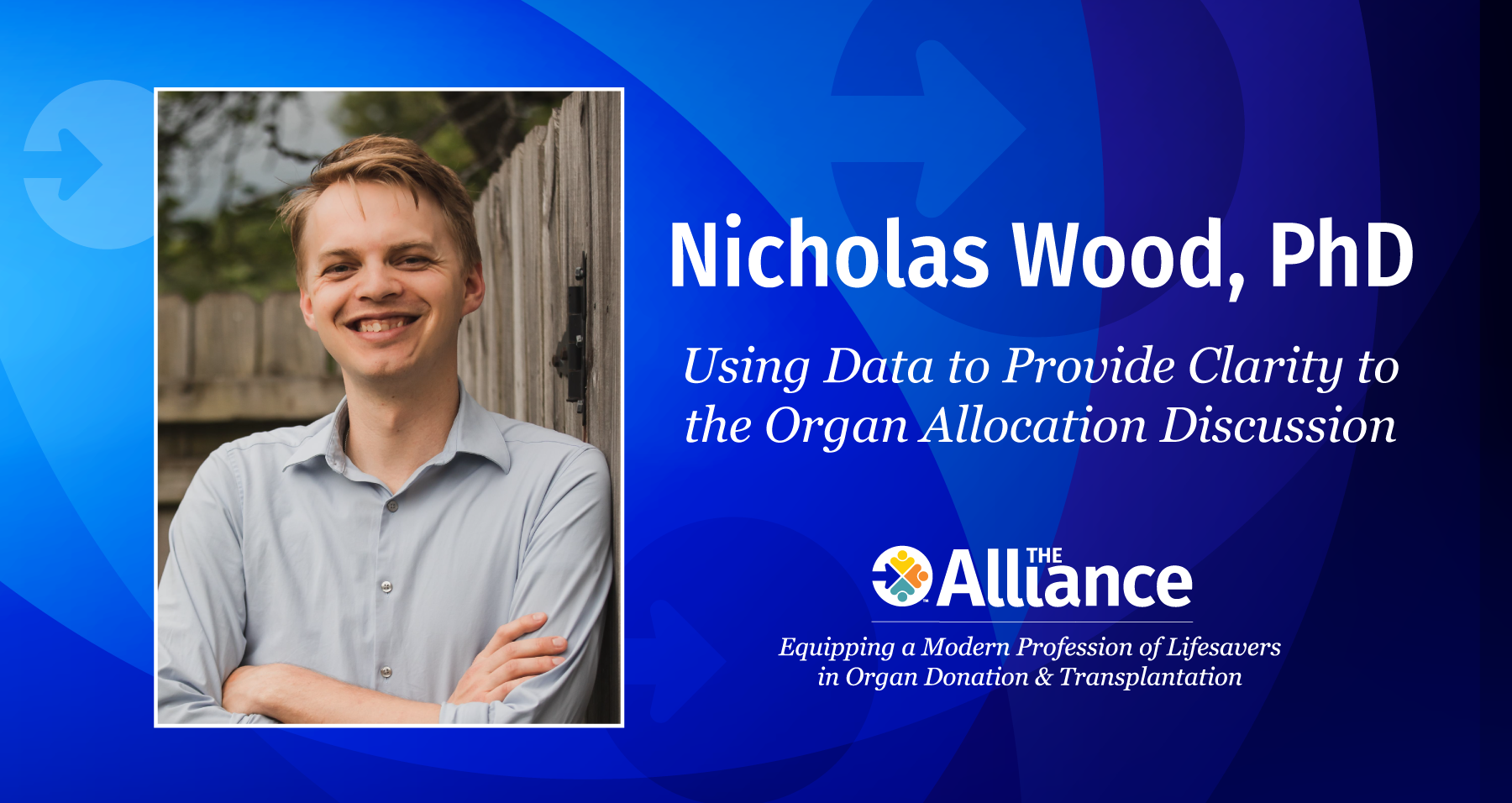

![SODApartnership[1]](https://www.organdonationalliance.org/wp-content/uploads/2024/05/SODApartnership1.png)


